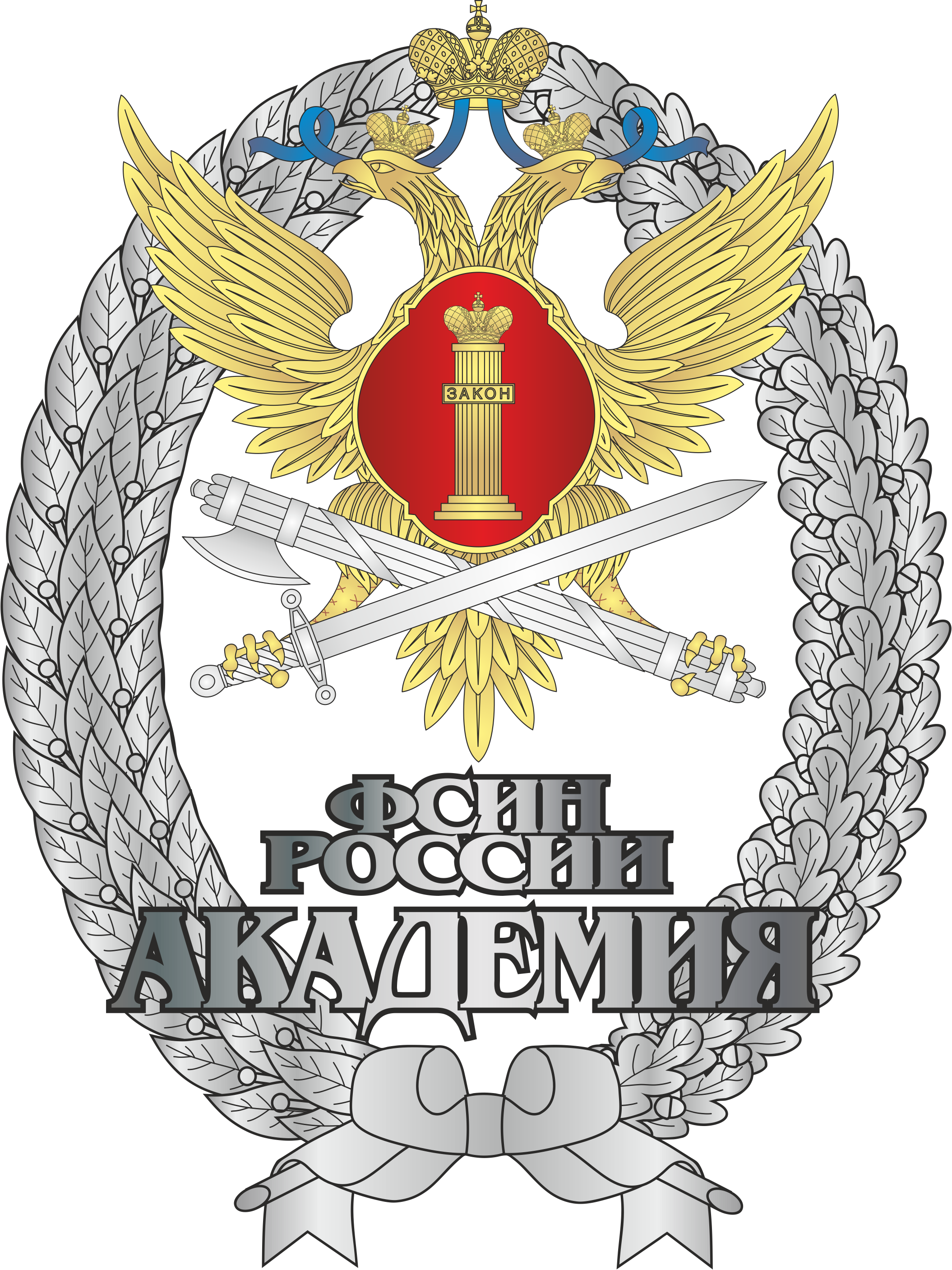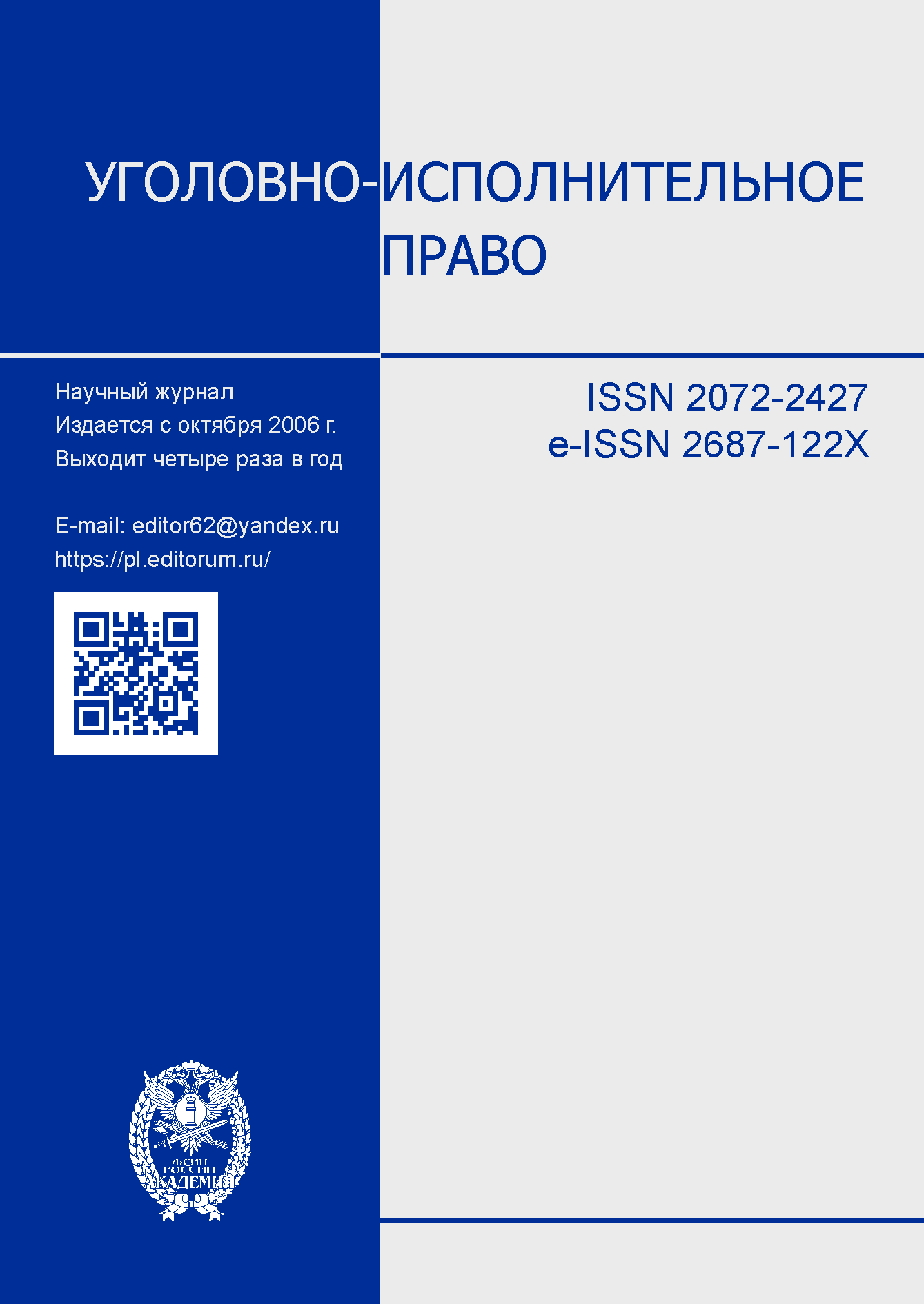UDC 343.846
Based on the analysis of the provisions of the Federal Constitutional Law «On the State of Emergency», the Criminal Code of the Russian Federation, the Penal Code of the Russian Federation and other normative legal acts, a number of shortcomings in the regulation of parole, replacement of the unserved part of the punishment with a milder one and release from punishment due to the illness of the convicted person, accepted by the court in extreme conditions, that is, when natural disasters occur or a state of emergency or martial law is imposed. The article focuses on a number of issues: suspension of the convict’s right to apply for early release, leaving the possibility of such treatment with the administration of the institution or body executing the punishment; attribution of the convict’s participation in emergency rescue and other urgent work to the criteria for parole or replacement of the unserved part of the punishment with a milder one; imputation of post-penitentiary responsibilities related to the elimination of the consequences of extreme conditions; etc.
early release from serving a sentence, state of emergency, natural disasters, regime of special conditions in a correctional institution, petition of the convicted person
1. Babajan, S. L. 2012, ‘Some issues of the application of the intersectoral incentive institute for parole from serving a sentence’, Man: Crime and punishment, iss. 3(78), pp. 35–39.
2. Belonosov, V. O. & Sjenduljak, K. I. 2014, ‘On the need to improve the criminal procedure regulation of parole’, Proceedings of the Irkutsk State Academy of Economics (Baikal State University of Economics and Law), iss. 5, pp. 22.
3. Skiba, A. P. & Maloletkina, N. S. 2022, “Prevention of offenses of convicted prisoners of war: problems of international law, penal and other legal regulation”, All-Russian Journal of Criminology, vol. 16, iss 4, pp. 522–528.
4. Grushin, F. V. 2021, ‘The institution of parole from serving a sentence: some aspects of functioning’, Penitentiary law: legal theory and law enforcement practice, iss. 1(27), pp. 59–63.
5. Efremova, I. A. 2018, ‘The material basis for parole from punishment’, All-Russian Journal of Criminology, vol. 12, iss. 1, pp. 82–91.
6. Novikov, E. E. 2021, ‘On some issues of legal regulation of the court’s activities as a participant in criminal procedural legal relations functioning at the final stage of the execution of criminal penalties’, Bulletin of the Tomsk Institute for Advanced Training of Employees of the FPS of Russia, iss. 3(9), pp. 69–74.
7. Skiba, A. P. 2016, ‘Problems of criminal procedural regulation of release from serving a sentence due to the illness of a convicted person’, Bulletin of the Institute: crime, punishment, correction, iss. 1(33), pp. 27–31.
8. Efremova, I. A., Kashuba, Ju. A. & Orlov, V. N. 2022, Penal legislation in the context of a natural disaster, the introduction of a state of emergency or martial law: monograph, A. A. Krymov & A. P. Skiba (ed), 4rd edn, Criminological Library, Moscow.
9. Brilliantov, A. V. & Babajan, S. L. 2023, ‘Ways to improve the application of early release from serving a sentence’, Penitentiary Science, vol. 17, iss. 3(63), pp. 245–253.
10. Skripchenko, N. Ju. 2017, ‘Grounds for the application of conditional early release from serving a sentence (analysis of the law enforcement practice of the Arkhangelsk region)’, in III International Penitentiary Forum “Crime, Punishment, correction” (on the 20th anniversary of the entry into force of the Penal Code of the Russian Federation): collection of abstracts of speeches and reports of participants of the International Scientific and Practical Conference, in 8 vols., vol. 3, pp. 66–73, Academy of the FPS of Russia, Ryazan.
11. Stepanov, V. V. 2009, Problems of theory and practice of parole from serving a sentence (on the example of the Tambov region): PhD thesis (law), Moscow.
12. Efremova, I. A. & Skiba, A. P. 2021, ‘Parole of a convicted person: problems of implementation in a state of emergency’, Penal law, vol. 16(1–4), iss 2, pp. 147–153.
13. Antipov, A. N. 2022, ‘On the issue of the possibility of parole for certain categories of convicts in emergency situations’, Academic Notes of the Faculty of Law, iss. 3, pp. 9–12.
14. Skiba, A. P. & Haritonovich, E. D. 2020, ‘Problems of the application of punishments unrelated to the isolation of convicts from society in relation to sick convicts in a natural disaster, the imposition of an emergency or martial law’, Bulletin of the Samara Law Institute, iss. 1(37), pp. 96–102.











